National government
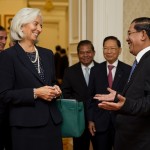
Cambodia is a constitutional monarchy. According to the 1993 Constitution, although he is the head of state, the king has very limited powers compared to the prime minister, the head of the government. Unlike the 1947 Constitution, power does not come from the king but ...
Legal aid policy and regulation
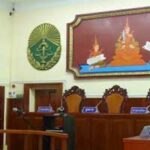
Public policies are a system of laws, regulatory measures, and plans of action implemented by the government to ensure that its functions are performed predictably and consistently.1 Policies typically outline the guiding principles of an operation; meanwhile, regulations set procedural expectations. Currently, there are no ...
SDG 12 Responsible consumption and production
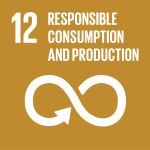
One of the key goals of the 2030 Agenda is to “decouple economic growth from resource use and environmental degradation”.19 Sustainable consumption and production involves promotion of resource and energy efficiency as well as reduction of economic, social and environmental costs. These are intended to ...
SDG 10 Reduced inequalities
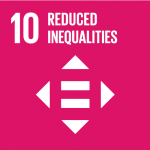
The 2030 Agenda was developed to reflect that “the international community has made significant strides towards lifting people out of poverty (). However, inequality still persists and large disparities remain in access to health and education services and other assets”. 48Although the number of people ...
SMEs policy and regulation
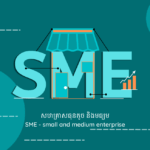
The Covid-19 pandemic has caused a major economic shock in Cambodia, having a spillover on Cambodian micro, small and medium enterprises (MSMEs) and small household farmers’ survival and business continuity.74 Digital technologies are crucial during the pandemic, in which the owners of SMEs should focus ...
Disaster and emergency response funding
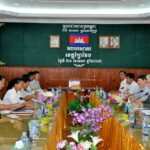
Cambodia has begun to integrate disaster and climate resilience goals into its national policies but implementation remains difficult. In the National Action Plan for Disaster Risk Reduction 2014–2018, the government prioritizes the target to: “build a resilient nation and local communities to pursue sustainable development.” ...
System of government
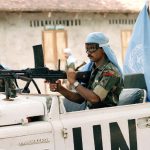
UNTAC soldiers from India patrolling the streets in Prey Veng province, Cambodia, on the second day of voting. Photo by United Nations Transitional Authority of Cambodia (UNTAC), taken on May 24 1993. Licensed under CC BY-NC-ND 2.0Cambodia inherited legal and political systems and a state ...
Extractive industries policy and administration
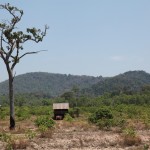
Cambodia’s extractive industries have traditionally operated on a small scale, mostly mining construction materials, gold or gemstones. While commercial production of minerals or oil has yet to begin on a large scale – these products made up just 0.1% of the country’s exports in 2016198 – ...
Electricity infrastructure
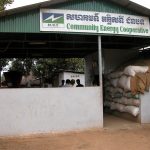
Rural energy cooperative in Cambodia. Photo by Nomade Moderne, taken on 23 March 2006. Licensed under CC BY-NC-ND 2.0The electricity distributed in Cambodia is partly generated within the country and partly imported. For many years, local generation was on a relatively small scale, and was ...
Biodiversity
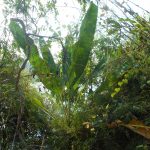
Biodiversity or Biological Resources: Various organisms in the same or different species and living organisms of all levels and sources, including land, marine and freshwater ecosystems, and the ecological relationships in which these ecosystems exist.246 Biodiversity is essential for most of the resources used by ...
Land sales and trades
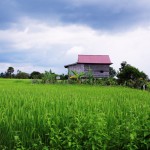
The legal framework surrounding land sales and transfers was obliterated by the 2007 Civil Code, leaving little legal guidance. Forced land sales and distress sales are a substantial cause of land tenure insecurity in Cambodia. They are a significant cause of landlessness, and it is ...
Bilateral development assistance
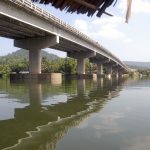
Phum Doung Bridge over the Tatai River. Photo by Robert Tyabji, taken on 9 December 2010. Licensed under CC BY-NC-ND 2.0Bilateral aid is assistance given by a government directly to the government of another country or to a local NGO. The Royal Government of Cambodia ...
Banking and financial services
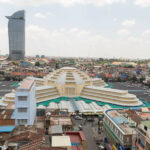
According to the Annual supervision report 2020 by the National Bank of Cambodia (NBC), the key bodies in the banking system consists of:51 commercial banks12 specialized banks75 microfinance non-deposit taking institutions6 microfinance deposit-taking institutions245 rural credit institutionsIn addition, there are financial leasing companies, third-party processors, ...
SDG 7 Affordable and clean energy
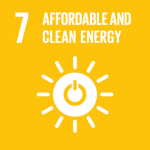
SDG 7 focuses on affordable, reliable and sustainable access to modern energy services. This includes ensuring universal access to energy services (SDG 7.1), increasing the proportion of renewable energy sources used to supply these services (SDG 7.2) and doubling the rate of energy efficiency improvements ...
Pandemics

Pandemics are disease epidemics that spread from person to person as a result of human-to-human transmission. Many medical texts do not define the term “pandemic”. However, some key characteristics of pandemics, including wide geographic spread, disease movement, novelty, severity, high attack rates and explosiveness, minimal ...
SDG 3 Good health and well-being
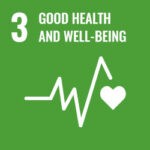
table td { border: 1px solid; } Sustainable Development Goal 3 (SDG 3) seeks to “ensure healthy lives and promote well-being for all at all ages”.495 The goal encompasses a wide range of mortality rates, infection numbers for many diseases, tobacco use, suicide rates, road ...
National parks and wildlife sanctuaries
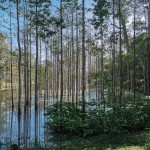
Cambodia’s national parks (or ‘natural parks’) and wildlife preserves were established under the 1993 Royal Decree on the Protection of Natural Areas. Although other areas have been added subsequently, there is currently no officially available list of all protected areas and their boundaries. ...
Climate change
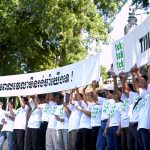
Voice from Cambodia–Time is running out. Photo by Oxfam International, taken on 21 October 2009. Licensed under CC BY-NC-ND 2.0.Climate change is the long-term change in the statistical distribution of weather patterns. While the climate of the earth has always gone through periods of change, modern scientific evidence ...
Communal land

Though there are multiple forms of communal property, the rights associated with indigenous communal property are subject to significant legal and socio-economic issues. Indigenous communities are culturally very different from the rest of Cambodia, and the law provides them with the opportunity to obtain collective ...
Carbon trading and other Payments for Ecological Services (PES)
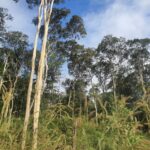
Forest view. Photo by Open Development Cambodia, taken on 05 December 2021. Under license CC BY-SA 4.0.Cambodia is covered with forest, accounting for around 13.1 million hectares in 1973, and it is had fallen to 8.7 million hectares in 2014.544 However, based on the Ministry ...



